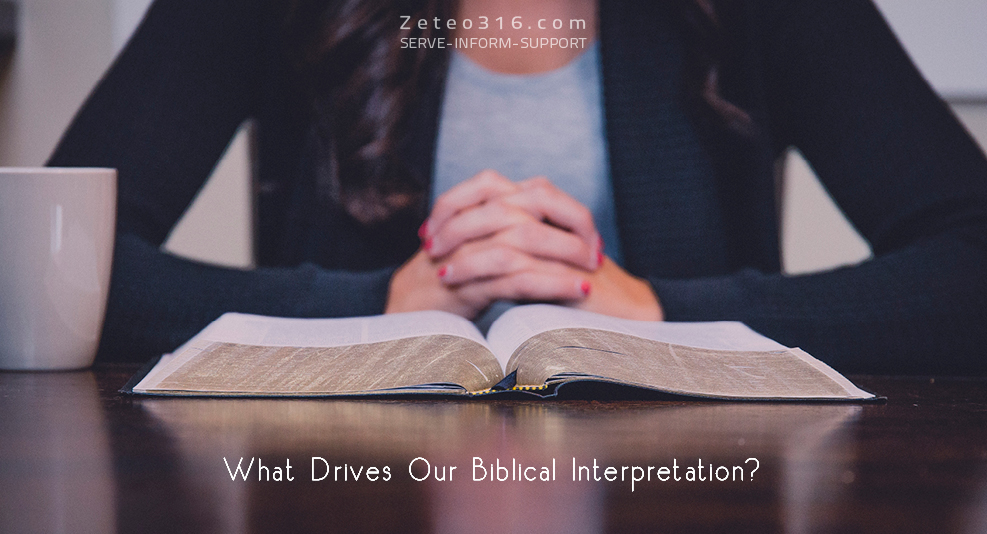What drives our biblical interpretation? Should we interpret Scripture based on tradition or science? Most Reformed Christians would disagree. They’d likely even add that their theological position is biblical, anyway. If we believe that Scripture is God breathed, we should also agree that it must drive our theology and what we believe about our world. In reality, this isn’t always the case.
Today we see examples of the re-interpretation of Genesis 1.1-2.4 in the Reformed Community and elsewhere. See Creation and Change by Douglas F. Kelly and What Happened in the Garden Edited by Abner Chou. Those who profess biblical inerrancy, yet do not take Genesis literally, strongly disagree that they re-interpret these passages. The books mentioned above are helpful (Kelly’s in particular) in understanding how and why some scholars justify their non-literal-inerrant understanding of Genesis in light of modern science.
The example of re-interpretation I most often refer to is the Israel-Church-Prophetic connection. For instance, a classic verse is Acts 1:6-7. I understand these two verses as affirming that there will be a future restoration of the kingdom to Israel. Jesus does not correct the disciples; he tells them that the timing isn’t for them to know, and that they have a commission to fulfill in the interim period. This is supported in many other passages of both the Old and New Testaments. But if one’s theological position is that Israel’s kingdom has been “expanded” or transcended beyond national Israel, then one must re-interpret Jesus’ response. For some examples of the arguments surrounding Acts 1:5-7 see Dr. Michael Vlach’s book He Will Reign Forever (Chapter 27).
Dispensationalism (Biblical Covenantalism) has much to say about hermeneutics, exegesis and our understanding of prophecy. Following are a few articles form a dispensational perspective.
Dr. Christopher Cone’s article “Our Theological System Should Not Tell Us How to Exegete the Bible” highlights the issue. He cites Kevin DeYoung:
“As a Christian I hope that my theology is open to correction, but as a minister I have to start somewhere. We all do. For me that means starting with Reformed theology and my confessional tradition and sticking with that unless I have really good reason not to… Without a systematic theology how can you begin to know what to do with the eschatology of Ezekiel or the sacramental language in John 6 or the psalmist’s insistence that he is righteous and blameless?”
Dr. Cone points out that this is eisegesis. He writes:
Rather than begin with any tradition or theology, why not simply read the passages, assess them in light of normal hermeneutic principles (literal grammatical historical), and allow the passages to speak for themselves? Why not then simply apply the narrow context to the broader context?
Reformed theology cannot do this in some cases, because the theological results would contradict the system.
Finally Dr. Paul Henebury has done excellent work on this subject (as mentioned in previous posts). More recently, he responded to proponents of New Covenant Theology in his Falling through the Porch series. In Part One he writes
A little while back Fred Butler told me that he had passed on my Forty Reasons article to a group of brethren connected with a network called Bible Thumping Wingnut. These men are proponents of New Covenant Theology and host a podcast called ‘Conversations on the Porch.’ They decided to spend some time on a critique of my article. This series of posts is my belated rejoinder to what they had to say.
First off, I have to admit that it is not easy to argue well with people who don’t put much effort into understanding your position. This was evidenced any number of ways, including the pain-inducing way at least one of the three presenters read from my article, which showed a lack of attention to what I wrote…keep reading

